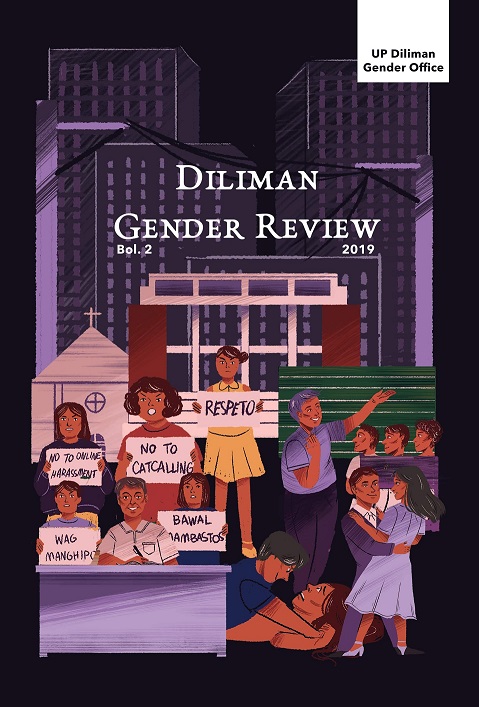Faces of Sexual Harassment in UP Diliman and the OASH Mandate
Abstract
As mandated, the Office of Anti-Sexual Harassment (OASH) of the University of the Philippines (UP) Diliman adheres to and implements the Anti-Sexual Harassment (ASH) Code. This is to ensure that we in the UP Community are assured of a campus that is safe and free from sexual harassment (SH). This article presents the UP mandate on anti-sexual harassment and the UP Diliman experience in responding to, investigating, and resolving SH cases. Coverage and specific provisions in the ASH Code that directly relate to and persistently emerge in the filed SH cases are discussed. SH cases filed from 2003 to April 2019 are examined, specifically in the following areas and contexts: the number of filed cases, demographics of both complainants and respondents, types of relationships between complainants and respondents, forms of SH, places where SH cases are committed, and the types of resolutions for the said SH cases. Challenges on implementing the ASH Code are presented, specifically those that concern the following: information and awareness of SH and issues that entangle it; the insufficient number of personnel; the augmenting of OASH’s support system in responding to SH cases reported, particularly in the areas of psycho-social and technological expertise; the strengthening of research and advocacy programs, especially in the student sector, which currently has the highest number of reported SH cases; and, finally, on developing a wellness program for OASH personnel and ASH Council members as frontliners who regularly handle complex, daunting, demanding, and emotionally-draining cases.
Keywords: Sexual harassment, Anti-Sexual Harassment Code, UP Diliman experience, jurisdiction, confidential



